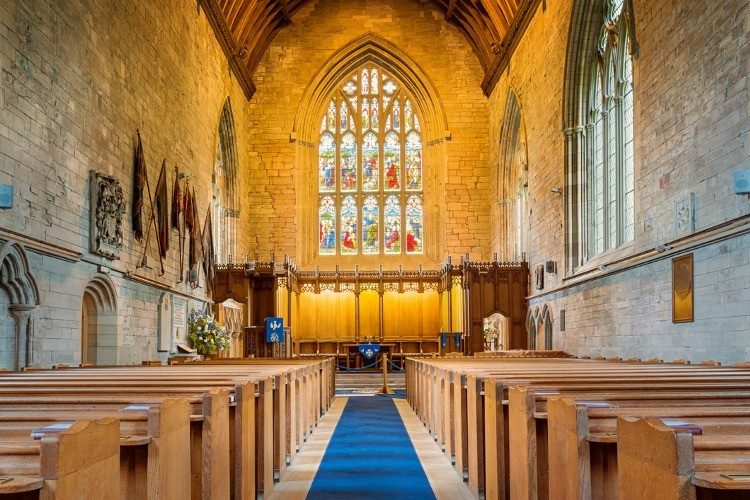
A group of Scottish church leaders is taking their government to court over recent coronavirus regulations that outlawed holding or attending an in-person worship service.
On January 8, Scotland’s First Minister Nicola Sturgeon “made it a criminal offense in the highest tiers for churches to hold services in-person,” according to a press release from the London-based Christian Legal Center, which is supporting the churches’ request for judicial review of the order. Sturgeon also forbade individuals to leave home to attend worship services.
While the order bans in-person services, it permits churches to be open for funerals, very small weddings, and “essential voluntary services or urgent public support services” such as providing food banks or serving as blood-donation or vaccination centers.
On January 15, 27 church leaders from a variety of denominations sent a pre-action letter to the Scottish ministers, urging them to reopen churches. Their pleas fell on deaf ears, so they are now asking the courts to intervene.
In their claim, the church leaders maintain that “public corporate worship, involving the physical gathering together of Christians … are fundamental and indispensable aspects of their religion.”
Furthermore, they argue that “virtual events … do not constitute public worship” because “in the absence of the gathered people of God, there is effectively no ‘church.’”
They also point to Scripture and church teaching as grounds for continuing to meet, and they state that “the absence of physical worship … prevents the church exercising a full ministry to its members,” something that is especially vital during a time in which the government is forcing them to stay home.
“I serve the local community on a council estate and there is a lot of darkness here,” said Gerald White, pastor of Edinburgh’s Hope Church. “The church offers hope to the hopeless. People’s struggles with drug and alcohol addictions are exacerbated at this time. Mental health issues are even worse than they were before and single mothers in particular are struggling. Under these regulations we cannot reach and support those in greatest need.”
The church leaders recount in their claim the various historic laws enshrining freedom of religion in Scotland, including the 1592 General Assembly Act, which not only protects churches from state interference but also mandates that elders ensure that regular worship occurs; the 1706 Act for Securing Protestant Religion, which grants no authority over the church to the Westminster Parliament and, thus, to any of its subsidiaries; and the 1921 Church of Scotland Act.
They also point out that the current closure regulations represent “an unprecedented interference with the practice of the Christian religion in Scotland since the persecution of the Presbyterian church instituted by the Stuart kings” in the 17th century — the last time the state attempted to shutter Scottish churches.
They contend that, in addition to these laws, the European Convention on Human Rights, to which the United Kingdom is a signatory, protects their right to worship as they please. And they note that “there is an emerging international jurisprudence … holding that bans and restrictions on religious services are unlawful,” citing, among other things, the U.S. Supreme Court’s November decision striking down New York’s restrictions on worship services.
On top of all that is the inconsistency of the Scottish government’s regulations, the church leaders add. Churches may be open for blood donations or vaccinations but not for worship, a position that microbiologist Dr. Ian Blenkharn declared “illogical” in a report supporting the case. Moreover, he wrote, “There is an overwhelming and unavoidable comparator that church services present no additional risk of COVID-19 coronavirus infection than would the many different commercial activities in the manufacturing, supply and retail sectors etc that are now permitted to operate.” The government itself has continued to operate courts despite the alleged dangers of COVID-19.
The church leaders are asking the court to overturn the church-closure regulations as unlawful and to declare that people may freely leave their homes to attend worship services.
Said the Reverand Dr. Rupert Hunt-Taylor of Edinburgh North Church, “When the nation faces a life-and-death situation, with so much already taken away from so many, you don’t close down the one source of true hope that Scotland has turned to for centuries.”


